Coco Peru: Now, More Than Ever
Coco Peru has been rehearsing her new show, Fucq This Sh!t, from her temporary home in Andalusia, Spain.

“It’s been a little weird,” says the drag performer, the alter ego of Clinton Leupp. Leupp is married to a Spaniard, and the couple spends several months in southern Spain each year. “It’s me standing here in our living room with my husband on the couch with my script and me rehearsing in front of him.”
But there was a hiccup bringing the show back to America. After agreeing to perform at Provincetown Town Hall this weekend, Leupp realized he had already presented Coco’s entire oeuvre in Provincetown in previous years. The only way to keep his commitment was to write something entirely new. He called Jeffery Roberson, a.k.a. Varla Jean Merman, for advice on getting out of the gig. Roberson, however, convinced him that their audiences needed to hear from them now. So, Leupp sat down in early January and began to write a whole new show.
With her trademark auburn pageboy, arched brows, and electric-blue eyes, Coco has been acerbically cutting to the truth of the matter since 1992. She has appeared in films including Trick, To Wong Foo …, and Girls Will Be Girls as well as guest roles on television in Will & Grace, Arrested Development, and How I Met Your Mother. But the brilliance of her live performances is the main reason her fans are so devoted.
Leupp’s shows have always been closer to legitimate theater than cabaret acts. “I’ve never thought of myself as a playwright,” he says. “I have thought of myself as a writer. It is a script, but it doesn’t sound like a script — it sounds like telling stories.
“At this point, I just need to get onstage,” he continues. “I need to be in front of people, to be with my community — to feel that celebration of who we are and who we’ve always been. We are survivors, and we bring a lot of joy to this world. And right now, I’m not feeling like we’re being appreciated at all. This show is my response to that.”
Tickets for Miss Coco Peru: Fucq This Sh!t at Provincetown Town Hall (260 Commercial St.) on Friday, Aug. 22 at 8 p.m. are $49-$139 plus fees at rainboweg.com. —James Judd
The Allure of Rubato
There’s something about rubato, the stretching and slowing of musical time, that cellist and Red Door Chamber Music associate artistic director Tyler Michael James says “tugs at the heartstrings the way a great singer might.” The technique is especially common in Romantic-era music, which also tends to involve harmonic elements like drawn-out suspension and resolution; exaggerated vibrato and sensitive glissando; and earnest emotional expression.
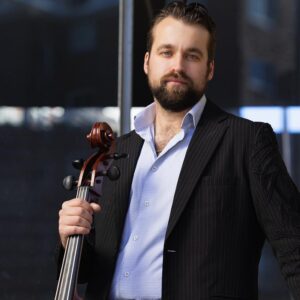
At the Unitarian Universalist Meeting House (236 Commercial St., Provincetown) on Sunday, Aug. 24, Red Door Chamber Music will present a concert of Romantic pieces. Titled “Fantasy and Romance,” the program, part of the Great Music on Sundays @5 series, will be performed by James, Jeffrey Thurston on violin, and Constantine Finehouse on piano.
James, who grew up in Chesapeake, Va., completed graduate and postgraduate studies in cello at the Longy School of Music of Bard College. He began playing the cello in fifth grade as part of a public music education program. “I’ve never looked back,” he says.
The earliest work on Sunday’s program is Robert Schumann’s Phantasiestücke, Op. 88, for piano trio, which Schumann composed in 1842 and which James describes as “a character piece.” Each of its four movements has its own personality. The “newest” work was written in 1901: Reynaldo Hahn’s Romance in A Major for violin and piano, which James calls “wonderfully warm and beautiful” and “a luscious celebration of the violin.”
In between are César Franck’s Sonata in A Major for cello and piano — an “extremely expressive” work with themes that roll in and out like tumultuous ocean tides — and Emilie Mayer’s Notturno for violin and piano, which James says is exactly what the title suggests. “It’s night music,” he says, “a tranquil, contemplative piece.”
The mission of Red Door Chamber Music is to promote the works of composers often dismissed or forgotten. Mayer, one of the most prolific woman composers of the 19th century, is one. Her compositions — which include eight symphonies, seven string quartets, and 12 cello sonatas — exemplify the music of the era with sensitive, urgent development and melodic themes that feel larger than life.
Tickets are $30 plus fees at brownpapertickets.com. —Dorothea Samaha
Debating Art History With a Twist
For the final event of the Summer Salons series at the Fine Arts Work Center (24 Pearl St., Provincetown) on Friday, Aug. 22, curator Helen Molesworth will be joined by artist Nicole Eisenman for a conversation about painting. They’ll discuss how a centuries-old medium can capture the pace and complexities of contemporary life.
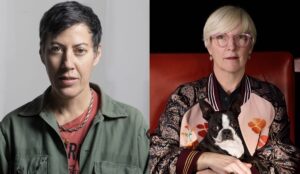
A highlight will be a “slide slam”: an improvised debate about art history that Molesworth describes as “a rap battle for geeky, nerdy art people.” Molesworth — who has held leadership positions at the Institute of Contemporary Art, Boston and the Los Angeles Museum of Contemporary Art — came up with the format in 2020. At the time, she was curator-in-residence at Anderson Ranch Arts Center in Colorado and was looking for a way to keep art talks lively and enriching when they moved online during Covid lockdowns.
For the slide slams, Molesworth and her interlocutor each come armed with a deck of images and take turns championing their chosen artists and works. Though she originally imagined audiences voting for a “winner” from each pairing, Molesworth says the people who come to her talks just enjoy the conversation and don’t get too concerned about the competitive aspect.
Eisenman — whom Molesworth calls “the great painter of everyday life” —says that her deck of images features mostly queer women artists, with a few curveballs thrown in. “There are some dead white men who made very lesbian art,” she laughs.
The evening begins at 5 p.m. with a reception in the FAWC courtyard, and the conversation and slide slam will follow at 6 p.m. in the Stanley Kunitz Common Room. Tickets start at $25. See fawc.org. —Brian Droitcour
Circles of Realization and Remembering
“Evolving Circles,” a retrospective exhibition of work by Joe Diggs, is currently on view at the Provincetown Art Association and Museum (460 Commercial St.). Diggs, who lives on a property in Osterville that his family has owned for generations, says he isn’t sure he’s ready for a full-on career retrospective — though at 65, he admits, “Age-wise, it does add up.”
Ready or not, Diggs says the show is also an opportunity for the works to communicate with each other. “It’s a conversation that is really needed, about history, what it’s like to be a Black male in this day and age,” he says. “Being sensitive but powerful, misunderstood, being invisible, but still trying to go forward.”
Diggs’s work strikes a tenuous balance between abstract and representational. Some paintings feature people; others look like rippling water or bare branches; in still others, sunlight dapples and glares. In Pickled Ham Hock Jammin’ @ Joe’s, the shape of a person, with an open mouth full of teeth, reveals itself only when the viewer chooses to see it.
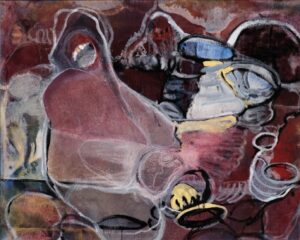
“Everything in its purest form is abstracted,” says Diggs. “Even if it’s a realistic representation, it isn’t realistic by the time it gets to the page.” The proximity of one thing to another changes reality, he says, “like a hard edge next to a soft edge.” Diggs’s paintings, with colors and shapes so rich and expressive that they suggest noise, are meant to be felt, not explained.
Some of the pieces represent people in Diggs’s life. One piece in the show, called Missing Kraig, is named for his nephew who died at 20 in a car accident. Another piece, I Remember You, is about a high school girlfriend who also died. “That was my first real realization of what love is,” he says.
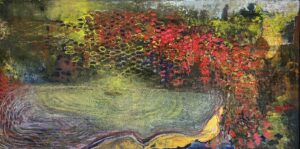
Other pieces are more obviously abstract, like Beyond the Surface and Pools. “They’re more about spiritual space than anything else,” says Diggs. “There’s this complication, but then there’s openness, and there’s a future that looks bright but at the same time it’s full of confusion.” The angst and beauty in his work, he says, can’t be separated.
Diggs will present a gallery talk about the exhibition on Thursday, Aug. 28, and the show is on view until Sept. 7. See paam.org. —Dorothea Samaha
Outdoor Dance Returns to the Outer Cape
Now in its 19th year, the Provincetown Dance Festival returns to the Edgewood Farm campus of the Truro Center for the Arts at Castle Hill (3 Edgewood Way) this weekend with a wide-ranging program including classical Cambodian dance mixed with hip-hop, contemporary ballet, avant-garde modern dance, and drag ballet.
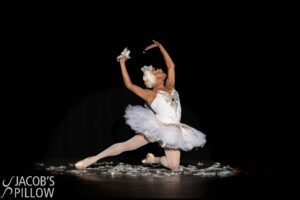
Festival founder Adam Miller notes that this year is particularly exciting because four works on the program will be world premieres of pieces created for the festival. This will also be the first year that the festival features live music from the Glass Artists Quartet, part of the Cape Symphony.
For Deanna Pearson of the Boston Ballet, the festival is a kind of homecoming. Pearson has been coming to her parents’ house in Brewster since she was born, but it will be her first time performing on the Cape in many years. She and Clay Murray of the Rhode Island Ballet have been working with Rhode Island-based choreographer Heather Nichols to create a new pas de deux, which Pearson describes as “neoclassical contemporary ballet.” The piece is based on a Beethoven adagio, which will be one of the selections performed live.
The popular Les Ballets Trockadero de Monte Carlo, an all-male troupe that is described as “the world’s foremost gender-skewing comic ballet company,” will return to the festival this year. Robert Carter, who has been dancing with “the Trocks” for 30 years, will perform the “Dying Swan,” a piece made famous by ballerina Anna Pavlova in 1905. But Carter will be bringing the graceful swan to life (and death) in drag.
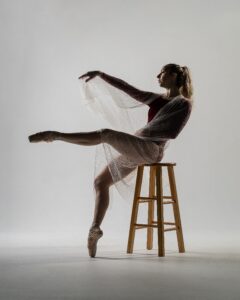
Miller says that the location of the festival — Sam’s Stage at Castle Hill’s Edgewood Farm — adds to the already magical experience of an outdoor dance performance. He says he loves the idea that other artists are making prints, painting, and welding in nearby buildings, and that audiences often come early for a picnic on the sculpture lawn.
Festival performances are on Friday, Aug. 22 and Saturday, Aug. 23 at 7 p.m. Tickets are $30-$40 at provincetowndancefestival.com. —Antonia DaSilva
A Pandemic Story Goes From Book to Stage
The Poets’ Theatre of Boston will present a one-night performance of This Costly Season, a play based on John Okrent’s poetry book of the same title, at the Harbor Stage (15 Kendrick Ave., Wellfleet) on Monday Aug. 25 at 7 p.m.
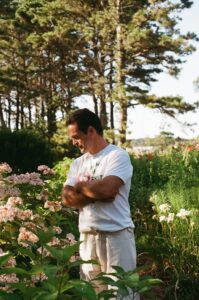
Okrent, a poet and family doctor in Tacoma, Wash., wrote the poems during the early days of the pandemic. His poems progress chronologically, like diary entries, from March 17 to Sept. 28, 2020. Writing them was Okrent’s way of processing the anxiety he felt as a frontline responder in the face of an unknown disease, and he says they also serve as a record of the time for his daughter, who was two years old when the pandemic started.
In 2022, David Gullette, literary director of the Poet’s Theatre, heard Okrent read from his book and thought the poems would make a good script. “He’s a real lyricist,” says Gullette, who adds that he was attracted to the way Okrent observed the details of “very personal daily life” while conjuring a sense of “mystic consciousness.”
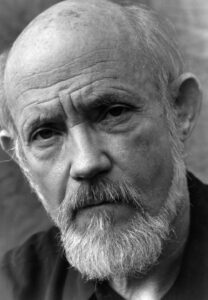
In the Harbor Stage production, Gullette, Ben Evett, and Vincent Siders play three doctors “who have had the worst weeks of their lives,” says Gullette. Earlier performances were held at Harvard’s Woodberry Poetry Room and Harvard Medical School. “If ever there was a book of poetry for doctors, this is it,” says Gullette.
After Okrent finished writing the poems, Covid became a point of intense political and cultural division. This project serves as a reminder of those early and too easily forgotten days when everyone seemed temporarily united by a shared concern. The poems resonate with a fragile, empathetic atmosphere.
“The goal of poetry is to find something that can bridge us all together,” says Okrent. “These poems are about universal feelings of fear of one’s mortality and love of your family and friends, and the solace we can all take in the natural world.”
Tickets are $10 at eventbrite.com or at the door on the evening of the performance. See harborstage.org. —Abraham Storer



